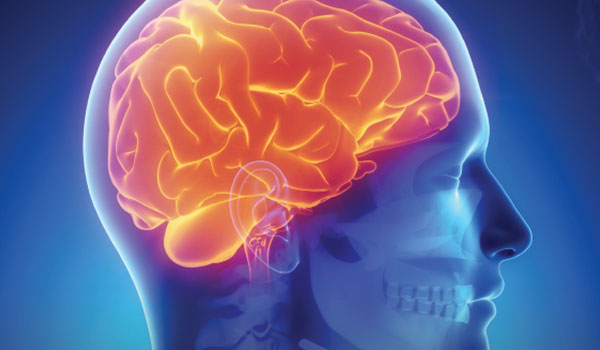It’s time to get working on your mind and memory. Just as we care for our body with exercise and the correct diet, we also need to care for our mind to ensure those precious moments aren’t forgotten.
We all have those loopy moments where we tear apart our homes looking for glasses perched innocuously atop our heads, or those embarrassing blunders where we call a colleague by the wrong name. The fact of the matter is the brain is congested and sometimes needs help, particularly within the memory department.
Without being able to store memories, every element of life would be a struggle; challenges that people with dementia have to face. Our memory assists us with every aspect of our day-to-day life, from how to do basic equations to what the name of your mother is.
Your memory is your brain The human brain is highly complex and features many different ‘compartments’ each that does something unique. One way to get your head around it (excuse the pun) is by visualising the brain as a library stocked full of memories, instead of books. In this library, the librarian would be the hippocampus — the part of the brain most involved in memory. The hippocampus has a lot of responsibility. It simultaneously juggles the new releases of the short-term memory whilst cataloging materials for the permanent long-term memory section. It’s not the only part at work, however, in storing these chapters of our lives.
Information overload Different kinds of memory are stored in different areas of the brain. With such a large system, the brain needs a system of encoding and retrieving memories, something a bit more complex than the local library’s Dewey Decimal System. The brain has to be able to instantly pull information when required; whether you need to remember a fact such as a phone number or a distant memory that’s been sitting in storage for years.
Help is at hand Whether you are eight or 80, there are many ways in which you can improve your memory. In fact, it is far easier than you would think. You can progress your memory just as easily as you can your language or maths skills, simply by repeating and practising.
Test Your Brain
Try these simple tips and ideas to improve your brain power!
1.  Focus on it Women, especially, are great culprits of getting side-tracked or multi-tasking to the extreme. Whilst this can be a positive thing, it unfortunately means you will often forget what the original task was and, if it never makes it into your memory, then you won’t be able to recall it later. Focus upon the task in hand and cross everything off your list one at a time.
Focus on it Women, especially, are great culprits of getting side-tracked or multi-tasking to the extreme. Whilst this can be a positive thing, it unfortunately means you will often forget what the original task was and, if it never makes it into your memory, then you won’t be able to recall it later. Focus upon the task in hand and cross everything off your list one at a time.
2. Ignite your senses By including all of your senses, you will have a greater chance at remembering the exact memory. That’s why you can remember the smell of your grandmother’s freshly-baked cookies as if she was making them now. A good tip for remembering someone’s name is by looking them in the eye, or shaking their hand. That way you have engaged much more than one sense.
3. Repeat it Repetition seems to work incredibly well for most people. Whether you are learning a language, the periodic table, or your new phone number keep repeating it throughout the day and you will find it integrates into your memory. Try not to cram though, instead keep up the repetition over a longer period of time.
4. Break it up The human brain is only able to retain seven pieces of information at one time, which is why it helps to separate information into chunks. For example, it can be difficult to remember a long mobile phone number as a whole. Divide it up so that when you say it you group numbers together in a rhythmic way.
5. Play games Just like children are encouraged to play games to enhance their learning and to arouse their minds, adults should engage in brain-stimulating activities. Crossword puzzles, Sudoku and other such logical games are proven methods to keep your mind healthy as they will unearth facts, figures and patterns that are locked within your memory. 6. Grow new brain cells Sounds completely bizarre, but it is possible to grow some new brain cells in the memory centre of your brain. Studies have shown that some types of intense aerobic exercise — such as running and cycling — encourages cell growth in the brain’s hippocampus.
7. Find the way that works for you Every person is different; therefore every person absorbs information in a different way. Some people like to write everything down, others benefit from recording notes and then listening back to it and some people learn visually. Determine the way in which you best remember by trying each way.
8. Connect the dots Research shows the memory can be stronger when you try to make associations upon first absorbing information. Think about how things are related, and the memory for both parts will be enhanced. Try connecting new information to existing information and experiences in your mind.
9. Live healthily Everything in the body works in unison meaning that a healthy body is a healthy brain. By avoiding stress, sleeping for eight hours a night and eating well relaxes and refreshes your mind and additionally helps your mind focus on new information.
10. Organise it Just as we need our home and office desk to be tidy in order to function properly, we also need our brains to be organised. Everything needs to be compartmentalised so that it can be better sorted through and stored away. By carefully organising what it is you have to memorise, you’re helping your brain better encode the information in the first place.





































